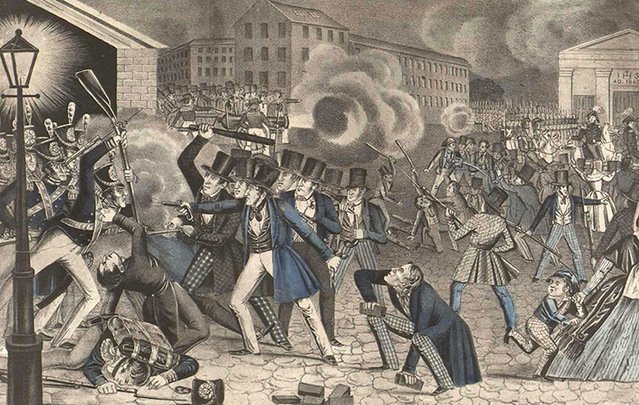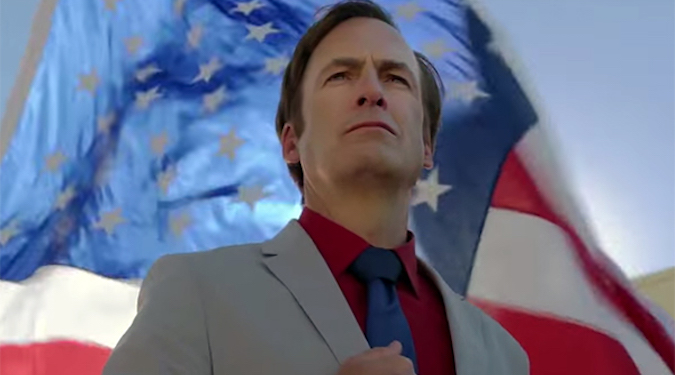Jake Meador addresses the question of whether to support impeachment of President Trump on the basis of the Decalogue (as the Christianity Today editorial did implicitly). After all, if you argue that Trump lied and broke the 9th commandment, what about other presidents who were not exactly truthful about intelligence and wars?
He goes on to say that the Ten Commandments are the basis of Protestant political reflection:
First, the Ten Commandments are central to traditional Protestant political theology. Indeed, the Reformed political theorist Johannes Althusius says that you destroy all possibility of symbiotic human community if you remove the Ten Commandments from public life. (In as much as many of our arguments about symbiotic communal life today depend on structuring our economy in such ways that human selfishness is ingeniously twisted to promote mutual material prosperity, I think Althusius is almost certainly correct.)
Likewise, many early Protestants, Melanchthon included, would argue that the Ten Commandments are simply a distillation of the Natural Law and so to remove the Ten Commandments from all consideration in public life is to render public life lawless; it is to make the norms of public life equivalent to the wishes of the powerful, who have the ability to wield the power of government to their own ends and who, apart from the law, have no mechanism to limit their power. This, of course, is an echo of Augustine’s much-cited line when he says that kingdoms without justice are but little robberies. Given the state of our republic, I, once again, find this line of thought highly persuasive. Therefore, any attempts to push the Ten Commandments to the center of Protestant political thought is quite welcome, for it is an attempt to return Protestantism to its historical roots.
… The magistrate’s responsibility is to preserve the peace of society through protecting the good and punishing the bad. So while I might sin in my inner life through impure thoughts, coveting, or some other vice, these things are not crimes, properly speaking, because they are strictly internal; if these thoughts are externalized in my conduct then they could become subject to civil law.
But what about the sins of the First Table that, as Protestant political theology teaches, magistrates are supposed to enforce? Don’t people remember the original Westminster Confession?
The civil magistrate may not assume to himself the administration of the Word and sacraments, or the power of the keys of the kingdom of heaven: yet he has authority, and it is his duty, to take order that unity and peace be preserved in the Church, that the truth of God be kept pure and entire, that all blasphemies and heresies be suppressed, all corruptions and abuses in worship and discipline prevented or reformed, and all the ordainances of God duly settled, administrated, and observed. For the better effecting whereof, he has power to call synods, to be present at them and to provide that whatsoever is transacted in them be according to the mind of God. (23.3)
That might be a good idea — having the magistrate (as long as it’s not Donald Trump or Anthony Weiner) evaluate worship — if the church is struggling with veneration for POTUS:
For Rose Ann Farrell, 74, from Florida, the claim rang true. “I really believe he was sent to us,” she said. “From one to ten, he’s a ten. He lives in a Christian world and we needed a strong Christian, somebody who is not afraid. He speaks for us, has the guts and courage to speak what we want to say. His actions, his intentions, are Christian.”
But is it such a good idea to enforce the First Table of the law on Muslims and Mormons?
Plus, why do Protestants concerned about public life so often reduce the Decalogue to the Second Table? That was not the way old Protestant political theology had it. Not only did the First Table restrict religious expression and worship, but the magistrate — maybe someone like Barack Obama — was supposed to enforce worship and morality. It doesn’t get much older for Protestant political theory than Calvin:
no man has discoursed of the duty of magistrates, the enacting of laws, and the common weal, without beginning with religion and divine worship. Thus all have confessed that no polity can be successfully established unless piety be its first care, and that those laws are absurd which disregard the rights of God, and consult only for men. Seeing then that among philosophers religion holds the first place, and that the same thing has always been observed with the universal consent of nations, Christian princes and magistrates may be ashamed of their heartlessness if they make it not their care. We have already shown that this office is specially assigned them by God, and indeed it is right that they exert themselves in asserting and defending the honour of him whose vicegerents they are, and by whose favour they rule. Hence in Scripture holy kings are especially praised for restoring the worship of God when corrupted or overthrown, or for taking care that religion flourished under them in purity and safety. (Institutes, IV, 20. 9)
I understand Meador wants to promote the common good and to do so as a self-conscious Protestant. I don’t understand, though, in a nation that prizes freedom — even religious freedom — how that common good is going to come from the Decalogue if the whole of it is in view.










